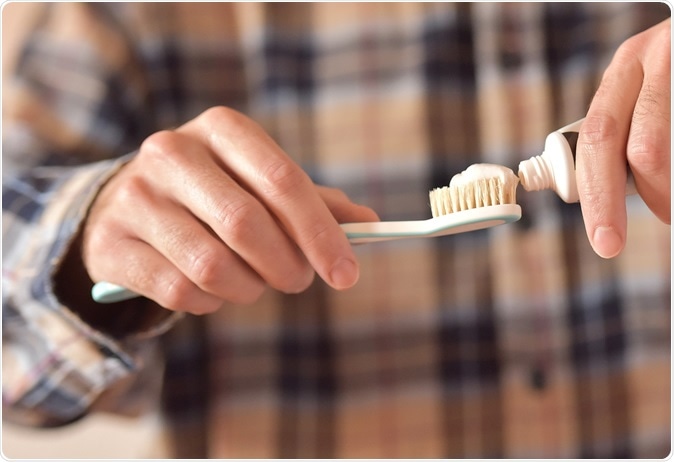Brushing twice a day for at least two minutes is a basic hygiene rule. According to a new survey from the Australia’s Oral Health Tracker, only half of the Australian adults brush twice a day regularly. Australia’s Oral Health Tracker includes experts such as dental researchers, clinicians as well as policy and public health experts. This report comes on World Oral Health Day and is released by the ADA.

Image Credit: Bugsbunny12 / Shutterstock
The survey showed that over 90 percent of the Australian adults show tooth decay in their permanent teeth to some extent. The Oral Health Tracker released its report today (20th of March 2018) to show the poor dental and oral hygiene routines followed by most adults in the country. The report states that smoking, risky alcohol consumption as well as poor dental care is one of the leading causes of poor oral health among Australians.
The report also noted that a quarter of teenagers have not had their teeth checked up in almost a year. Women aged between 18 and 35 were usually the ones who were brushing twice a day, the report finds. As the people aged, their brushing habits decline. The report states that 15.5 percent of the adults have severe tooth loss which means they have less than 21 teeth.
Tooth decay is at alarming levels among children too, states the report. Three out of four kids are taking in too much sugar, they noted and this is one of the main causes of cavities. Dr Hugo Sachs, president of the Australian Dental Association says, “The evidence shows that one-third of Australia’s five- to six-year-olds have had decay in their baby teeth. This is an unacceptably high rate and puts these children at risk of poor oral health in their development and adult years.” Royal Children’s Hospital National Poll also found recently that one in four children in primary school required a tooth filling and one in 10 kids needed a tooth extraction due to decay. Decaying painful teeth led to one in 20 kids being brought to the hospital the poll found.
Public health expert Professor Rosemary Calder, director of the Australian Health Policy Collaboration (AHPC) at Victoria University says tooth decay is expensive and a burden to healthcare apart from being painful. She said that in 2015-16, there were 67,266 hospitalizations for oral health problems. One third of these were children under 9 years of age. These were all potentially preventable she said.
Experts believe brushing and flossing would solve only part of the problem. A deeper approach to nutrition is also necessary. Diets should be rich in vitamins and minerals and low on refine flours and sugars. Butter, meats, egg yolks, full fat dairy along with fruits and vegetables should be part of regular diet to ensure healthy teeth.